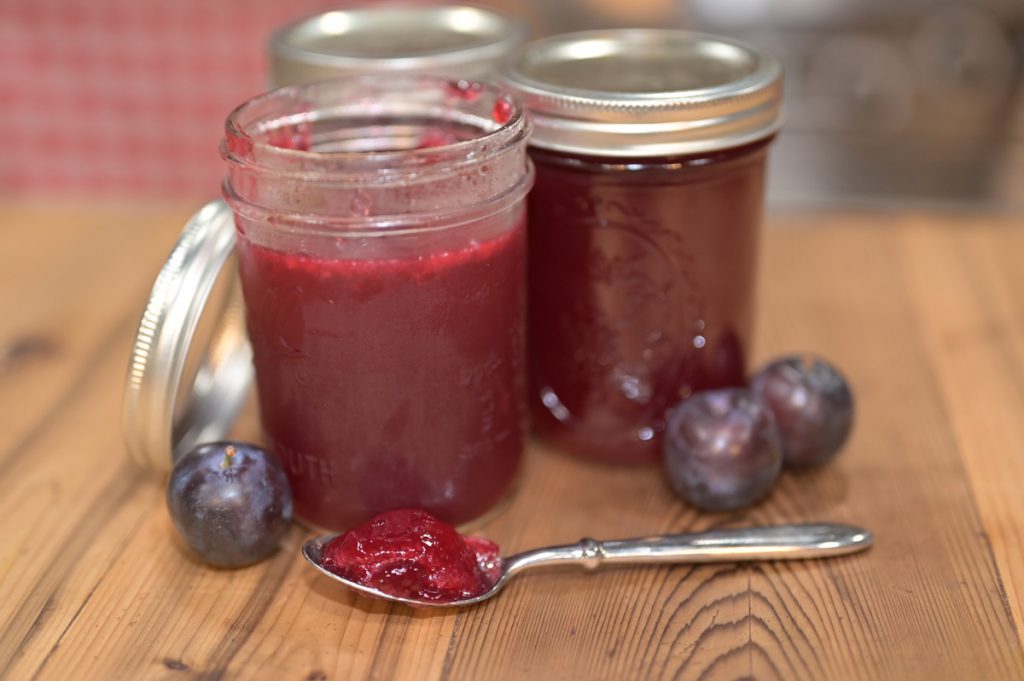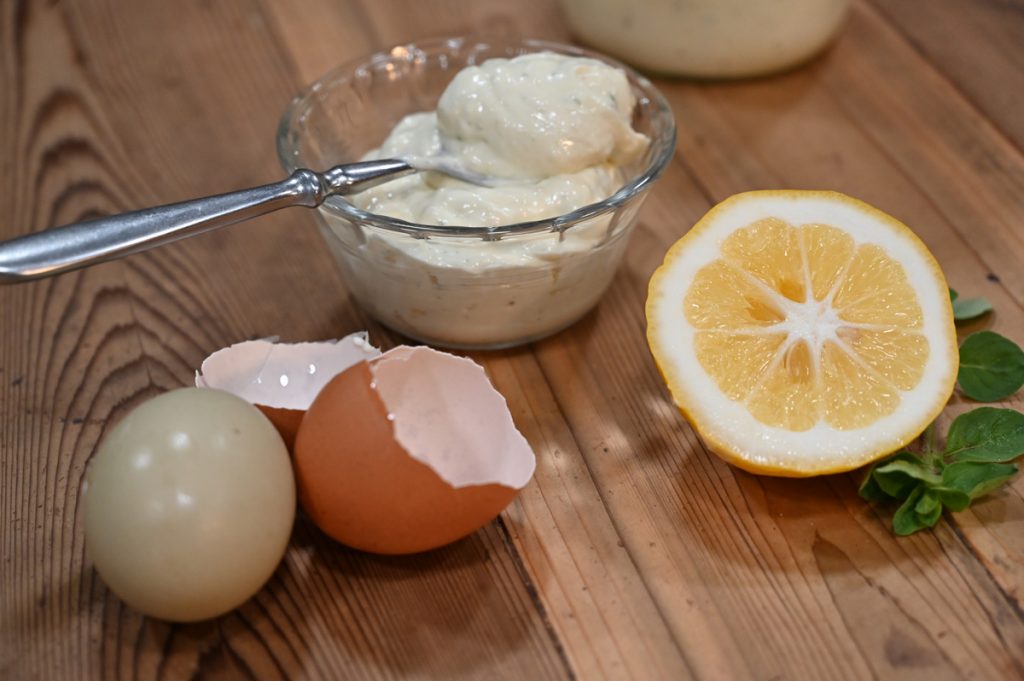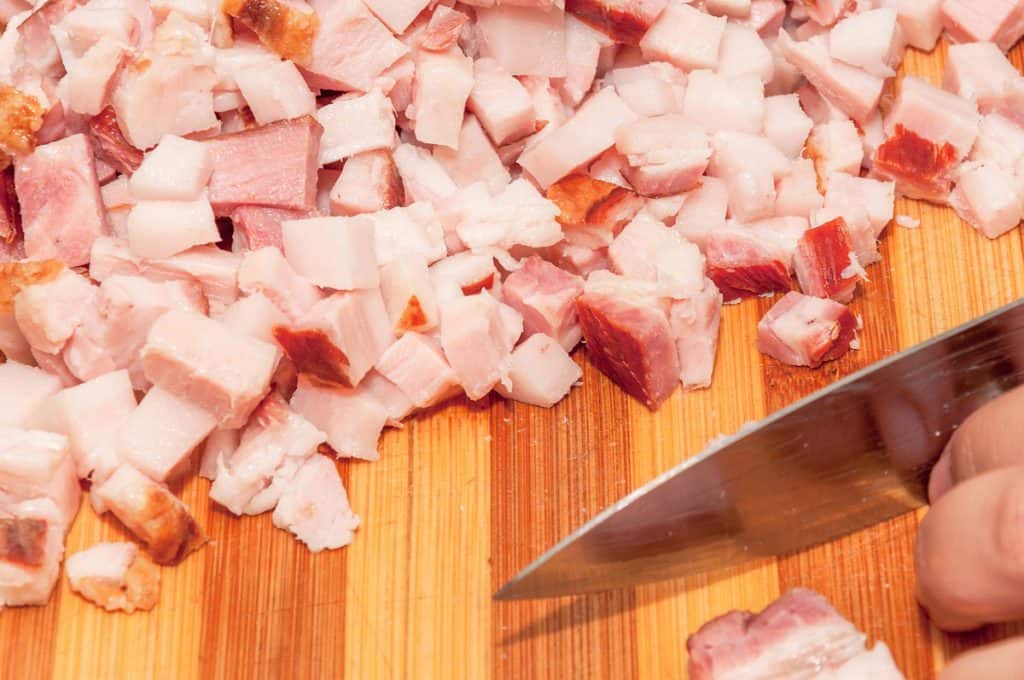The rising cost of food makes eating healthy whole foods more and more difficult. One good thing about a freeze-dryer is that it lets you save food during the harvest, when it’s freshest and cheapest, so you can eat it all year. It’s important to know what foods cannot be freeze-dried to avoid wasting your time and your grocery budget.
Bacon is a beloved breakfast staple in many households. Who doesn’t love waking up to the irresistible aroma of sizzling bacon? But fresh bacon has a short shelf life going bad within just a week or two in the fridge. Freeze drying allows you to preserve bacon for long-term storage without refrigeration. But can you really freeze dry bacon at home?
The short answer is yes! With the right techniques, freeze drying bacon is absolutely possible. In this complete guide, we’ll cover everything you need to know, including
- How to prepare bacon for freeze drying
- Step-by-step freeze drying process
- Storage and shelf life
- Rehydration tips
- Pros and cons of freeze dried bacon
Arm yourself with the knowledge to make shelf-stable bacon at home.
Why Freeze Dry Bacon?
There are a few key advantages to freeze drying bacon:
-
With the right care, bacon can last for over 15 years if it is freeze-dried and stored. This long shelf life means you can stock up while prices are low.
-
No refrigeration – Freeze dried bacon is shelf-stable at room temperature. Perfect for long-term food storage and emergency preparedness.
-
Lightweight – The low moisture content makes freeze dried bacon very lightweight. Easy to transport for hiking, camping, and bug out bags.
-
Convenient – Bacon bits ready anytime without cooking. Just add hot water to rehydrate.
For preppers, homesteaders, and bacon lovers alike, freeze drying allows you to enjoy bacon anywhere.
Preparing Bacon for Freeze Drying
Raw bacon contains a high fat content. To prepare it for successful freeze drying:
-
Cook the bacon first to render out excess fat. Baking strips in the oven is best.
-
Line trays with parchment paper for easy removal later.
-
Space out strips to allow fat to drain away from bacon.
-
Cook for 20-25 minutes per side at 350°F until crispy.
-
Blot with paper towels to absorb any remaining surface fat after cooking.
Cooking renders out the fat that can inhibit freeze drying. Be sure to cook bacon thoroughly before freeze drying.
Freeze Drying Process
Follow this simple process to freeze dry cooked bacon:
-
Load trays of cooked, drained bacon into the freeze dryer.
-
Freeze for the recommended time if bacon wasn’t pre-frozen.
-
Dry for 24-36 hours. Bacon should be completely dry and brittle when done.
-
Check strips towards the end of drying time. Extend drying if any softness remains.
-
Remove and immediately store in air-tight packaging.
It can take 24+ hours to fully freeze dry bacon depending on fat content. Be patient for best results.
Storage and Shelf Life
Storing freeze dried bacon properly is critical for maximizing shelf life:
-
Wait for bacon to cool completely after freeze drying before packaging.
-
Use oxygen absorber packets and moisture-proof packaging like Mylar bags.
-
Seal bags/containers thoroughly to remove oxygen.
-
Store in a cool, dry place away from light and heat.
-
Avoid temperature extremes. Ideal storage temperature is 60-70°F.
With proper storage methods, freeze dried bacon can last 15+ years at room temperature.
Rehydrating Freeze Dried Bacon
One of the biggest benefits of freeze dried bacon is that it rehydrates quickly for use:
-
Crumble bacon into small bits to rehydrate evenly.
-
Add just enough water to cover the bacon pieces. About 2-3 tablespoons of water per 1⁄4 cup bacon.
-
Let sit 5-10 minutes. Check often to avoid over-soaking.
-
Drain excess water before eating or cooking further.
-
Use immediately after rehydrating for best texture and flavor.
Add hydrated bacon bits to eggs, soups, salads, and more. Adjust water amount as needed.
Tips for Successful Freeze Dried Bacon
Follow these tips for the very best results:
-
Cook bacon thoroughly before freeze drying to remove fat.
-
Allow cooked bacon to cool fully before loading into the freeze dryer.
-
Extend freeze drying time if bacon still contains any moisture.
-
Use heavy-duty, moisture-proof packaging for long term storage.
-
Store freeze dried bacon in a cool, dry location around 60-70°F.
-
Rehydrate frozen bacon in cool water, not hot, to prevent cooking.
-
Use rehydrated bacon right away for optimal texture and flavor.
Putting in the extra prep work means you’ll get superior results.
The Pros and Cons of Freeze Dried Bacon
Like any food preservation method, freeze drying bacon has both advantages and disadvantages:
Advantages
-
Very long shelf life without refrigeration
-
Lightweight and portable for trips
-
Convenient bacon bits anytime
-
Retains more nutrients than heat drying
Disadvantages
-
Need freeze dryer equipment
-
Fatty; doesn’t freeze dry perfectly
-
Rehydrated texture changes somewhat
-
Not a budget-friendly process
For most bacon enthusiasts, the huge convenience factor outweighs any downsides.
Enjoy Bacon Anywhere, Anytime
With the right techniques, freeze drying bacon at home is absolutely doable. While it does require extra preparation compared to other foods, the payoff is having lightweight, shelf-stable bacon ready anytime. Simply hydrate and add to any dish.
From camping meals to emergency food storage, freeze dried bacon offers tasty convenience no matter where you are. Now you can wake up to the smell and taste of bacon, even miles from your kitchen!

Some Candy & Cookies
Freeze-dried Skittles and Jolly Ranchers have become a popular novelty. You’ll now see these being sold at many Farmer’s Markets and Street Fairs. Freeze-drying candy and selling it could be a great way to help offset the cost of the freeze-dryer.
But candies that are high in sugar and low in water might not freeze dry well. Chocolate-based candies also might not freeze dry well (see below). I say to have fun and try freeze-drying different candies in this category. Then you can decide which one you like best.
Pure chocolate has a high fat content in the cocoa butter. It will leave an oily residue behind, and the texture will change. Instead of freeze-drying, chocolate can be frozen, refrigerated or vacuum sealed to extend its shelf life.
Foods containing a small amount of chocolate as an ingredient can be freeze-dried. You will want to eat it within a few months, though, because it won’t last that long.

Because coffee beans are oily and hard to break apart, they shouldn’t be freeze-dried. The beans won’t be the same, and they’ll lose a lot of their coffee flavor while picking up the flavor of whatever was in the freezer before them.
Homesteading Hack: You can freeze-dry brewed coffee! Pour it into the freeze-dryer tray and turn on the freeze-dryer. This powder can be used to make instant freeze-dried coffee; just put some in your cup and add hot water to taste.

The high sugar content and thickness of honey will not freeze-dry; it will be a sticky, gooey mess. Just make sure to store honey in a clean, germ-free container. Honey’s natural antimicrobial properties should keep it fresh for a very long time without any other added protection.

It’s possible to freeze dry fruits, but jams and jellies don’t freeze well because they have a lot of sugar in them. While jams and jellies are being canned, it is best for the water molecules to bind up. This stops mold and bacteria from growing. This canned plum jelly recipe is one of our favorites.

Because mayonnaise has a lot of oil in it, it won’t freeze dry well, and when it’s reconstituted, it will be very oily. This simple lacto-fermented mayonnaise recipe is a much better choice. It’s quick and easy to make, and it keeps homemade mayo fresh longer.
Why Are Some Foods Not Suitable for Freeze Drying
Some foods shouldn’t be freeze-dried because of how it works, just like some foods shouldn’t be dehydrated. Foods need the appropriate amounts of moisture, fats, and sugars to be suitable for this preservation method.
Freeze-drying unsuitable foods will result in poor flavor, consistency and texture, and perhaps result in safety issues. Also, the food might not freeze-dry all the way through (and you wouldn’t know it), which would cause it to go bad at room temperature.

More On Freeze Drying Bacon
FAQ
Can you freeze dry peanut butter?
Can you freeze dry avocados?
What is the shelf life of freeze-dried nuts?
Can you freeze Bacon?
Try freezing the pieces individually, and grab them out of the freezer whenever you have a hankering for bacon and eggs or need to jazz up a simple dish. Or if you want to know how to freeze bacon so you can grab a slice for your individual morning breakfast, this is the method for you.
Can you freeze refried beans?
Freezing refried beans is a simple and practical solution for dealing with leftovers. You can reheat them on the stove or in the microwave.
How long does freeze dried bacon last?
Freeze-dried bacon can last for 10-15 years when prepared and stored properly. It doesn’t last as long as other freeze-dried food because of its fat content. But after all that preparation, having it is all worth it. Now that you know the basics, how would you freeze-dry your bacon differently?
How long does it take a freeze dryer to dry Bacon?
Let the freeze dryer pre-cool for frozen meat slabs for 15-30 minutes. When the freeze dryer’s ready, close the valve and open the chamber door to load the trays of bacon. Close the door and let the freeze dryer work its magic on the meat. How Long Will Freeze Drying Take?
